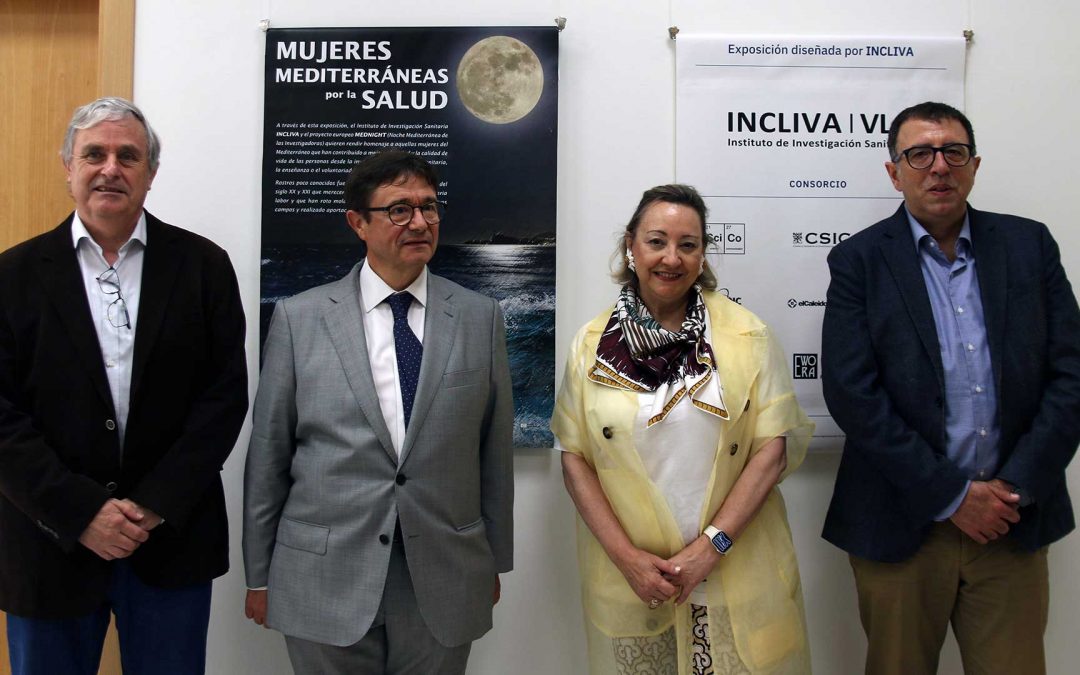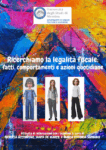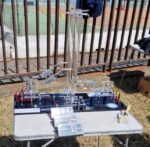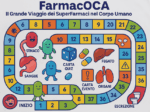The exhibition ‘Mediterranean Women for Health’, designed by the INCLIVA Biomedical Research Institute within the framework of the European project Mednight (Mediterranean Researchers’ Night), opened its doors this morning in the exhibition hall of the Casa de la Ciència of the Spanish National Research Council (CSIC) in the Valencian Community (Calle Bailía 1, next to Plaza de la Virgen).
The exhibition, which is open to the public until 5 May (Monday to Friday from 10 a.m. to 4 p.m.), is a tribute to the women of the Mediterranean who have contributed to improving people’s health and quality of life in areas such as research, health care, education and volunteering. Through 24 canvases, it shows the little-known faces outside their countries of origin of women of the 20th and 21st century who deserve to be made visible for their extraordinary work, for having made significant contributions and for having broken the mould in their respective professional fields.
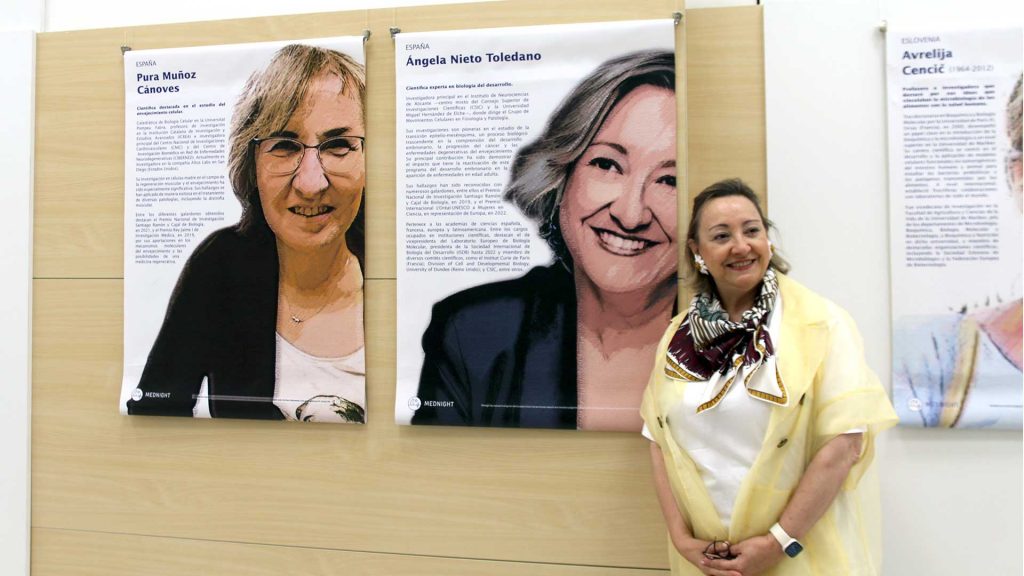
Audiences of all ages will be able to learn about the contributions of 26 women who have left their mark in their respective professional fields and in different Mediterranean countries such as Albania (Alma Neço), Algeria (Fatiha Razik), Bosnia and Herzegovina (Angelina Dulić), Croatia (Karola Maier Milobar), Cyprus (Gülsen Bozkurt), Egypt (Maha El Rabbat), Croatia (Karola Maier Milobar), Cyprus (Gülsen Bozkurt), Egypt (Maha El Rabbat), Slovenia (Avrelija Cencič), Spain (Ángela Nieto Toledano and Pura Muñoz Cánoves), France (Françoise Barré-Sinoussi and Madeleine Brès), Greece (Elisa E. Konofagou and Anna-Maria Pappa), Israel (Asya Rolls), Italy (Rita Levi-Montalcini, Francesca Colavita, Concetta Castilletti and Maria Rosaria Capobianchi), Jordan (Areej Abuhammad), Lebanon (Myrna Doumit), Libya (Alaa Murabit), Malta (Irene Condachi), Morocco (Hakima Himmich), Tunisia (Tewhida Ben Sheikh) and Turkey (Canan Dağdeviren and Seza Özen).
The exhibition was inaugurated this morning with the attendance of Andrés Cervantes and Vicente de Juan, scientific director and managing director of INCLIVA, respectively; Juan Fuster, delegate of the CSIC in the Valencian Community; Luis Antonio Castillo, economic director of the Foundation of the Valencian Community Prince Felipe Research Centre (CIPF); Ainhoa Genovés, managing director of the La Fe Health Research Institute; and Carlos Ferrer, general director of the Castellón Provincial Hospital Research Foundation.
After Juan Fuster’s welcome, a colloquium began, aimed at pre-doctoral and emerging researchers, in which Andrés Cervantes introduced Ángela Nieto – one of the women portrayed in the exhibition, principal investigator at the Instituto de Neurociencias de Alicante (a joint centre of the CSIC and the Miguel Hernández University of Elche), where she directs the Cellular Movements in Physiology and Pathology Group – who summarised her professional career and applauded this initiative as “a magnificent opportunity to make visible the work of many women in a crucial region for our common future”.
After the colloquium, Vicente de Juan invited the attendees to take a tour of the exhibition.
The discussion, which has been broadcast in streaming, can be seen on the YouTube channel of the CSIC’s Casa de la Ciència in Valencia.


